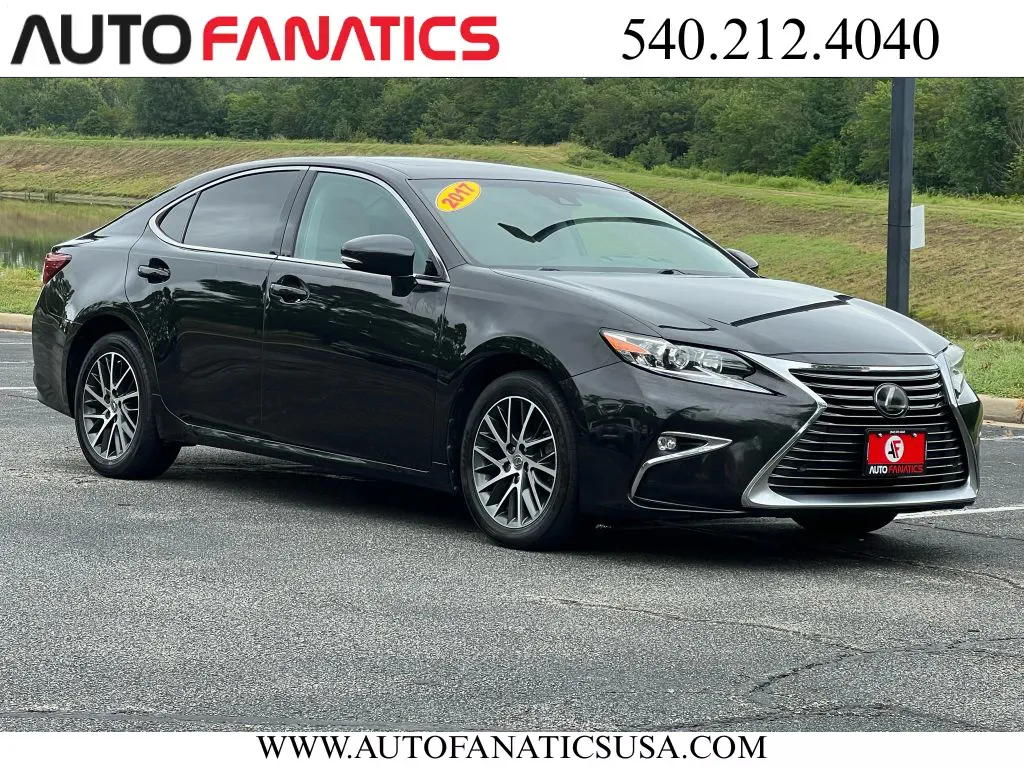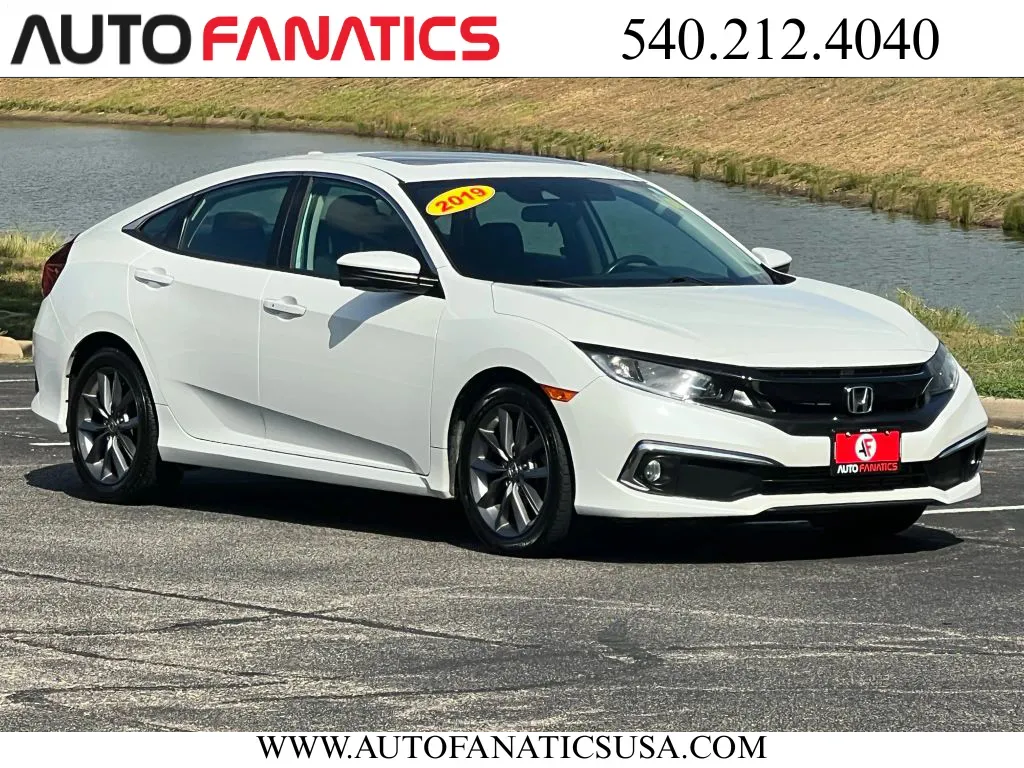How Much Car Loan Can I Get Approved For? (A Guide)
Table of Contents
How Much Car Loan Can I Get Approved For? (A Guide)
Getting a car loan isn’t a simple yes-or-no decision from a lender; it’s a conversation about numbers. Your financial story, from your job history to how you’ve handled past debts, helps determine the outcome. If you’re asking, "how much can I get approved for a car loan?" you’re already on the right track to becoming an empowered buyer. Lenders consider several predictable factors, including your credit score, your income stability, and the value of your trade-in. This article will demystify the process, showing you exactly what matters most so you can see your financial picture from a lender’s perspective and prepare to get the best possible offer.
Key Takeaways
- Know Your Numbers Before You Apply: Lenders review your credit score, income, and debt-to-income (DTI) ratio to build a complete financial profile. Understanding these key metrics beforehand helps you know what you can afford and strengthens your application.
- Secure Your Financing First: Getting pre-qualified for a loan before you start car shopping gives you a firm budget and turns you into a cash-confident buyer. This step simplifies the process and puts you in a much stronger position at the dealership.
- Look Beyond the Monthly Payment: The true cost of a car includes insurance, fuel, maintenance, and fees. Factoring these expenses into your budget from the start ensures your new vehicle fits comfortably into your financial life without any surprises.
How Lenders Determine Your Car Loan Amount
When you apply for a car loan, lenders look at more than just one number to decide how much you can borrow. They’re trying to build a complete picture of your financial health to feel confident in your ability to pay back the loan. Think of it like putting together a puzzle—each piece gives them a clearer view of you as a borrower. Understanding these pieces ahead of time can make the whole process feel less mysterious and help you prepare for your application.
From your credit history to the size of your down payment, several key factors come into play. Each one helps the lender assess risk and determine not only if you’ll be approved, but also for how much and at what interest rate. Let’s walk through exactly what they’re looking at, so you can approach your application with confidence and know where you stand.
Your Credit Score
Your credit score is one of the first things a lender will check. This three-digit number acts as a snapshot of your history with borrowing money. A higher score generally shows lenders that you have a strong track record of paying bills on time, which makes you a lower-risk borrower. This often translates into a better loan offer with a lower interest rate, saving you money over the life of the loan. If your score is on the lower side, don't worry—you can still get a loan, but the terms might be different. You can check your credit score for free from the major credit bureaus to see where you stand.
Your Income and Job History
While your income doesn't directly impact your credit score, it’s a huge factor for lenders. They need to see that you have a steady and reliable source of income to cover your monthly car payments. A consistent job history helps demonstrate this stability. Lenders will typically ask for recent pay stubs or other proof of income to verify that you can comfortably handle the loan you’re applying for. They aren't just looking at how much you make, but also the consistency of your earnings over time. This gives them confidence that you'll be able to keep up with payments for the entire loan term.
Your Debt-to-Income (DTI) Ratio
Your debt-to-income (DTI) ratio is a simple but powerful number that lenders use. It’s the percentage of your gross monthly income that goes toward paying your monthly debts, like rent, credit card payments, and other loans. For example, if you earn $4,000 a month and have $1,600 in debt payments, your DTI is 40%. Lenders prefer a lower DTI because it suggests you have enough money left over after paying your bills to handle a new car payment without stretching your budget too thin. You can use a car loan calculator to estimate a monthly payment and see how it might affect your DTI.
The Size of Your Down Payment
A down payment is the cash you pay upfront when you buy a car, and it directly reduces the amount you need to borrow. The more you put down, the smaller your loan will be. This is a win-win: it lowers your monthly payments and can also help you secure a lower interest rate because you’re borrowing less. A common guideline for used cars is to put down at least 10% of the vehicle's price. If you have a vehicle to trade in, its value can serve as part of or all of your down payment. You can easily get your trade-in value online to see how much you could apply toward your next car.
The Car You Choose
The specific car you want to buy also plays a role in the loan approval process. The vehicle itself acts as collateral for the loan, which means if you stop making payments, the lender can take possession of the car to recover their money. Because of this, lenders consider the car's age, mileage, condition, and overall market value. A newer used car with lower mileage might qualify for a better interest rate than an older, high-mileage vehicle. When you browse our wide selection of vehicles, you can be sure that every car has been meticulously inspected to meet high standards of quality and reliability.
Your Preferred Loan Term
The loan term is simply the amount of time you have to repay the loan, usually expressed in months (e.g., 48, 60, or 72 months). Your choice here creates a trade-off. A longer term will result in lower monthly payments, which can be easier on your budget. However, you'll end up paying more in total interest over the life of the loan. A shorter term means higher monthly payments, but you’ll pay the car off faster and save on interest. Lenders will look at your preferred term to ensure the monthly payment is something you can realistically manage alongside your other financial obligations.
Estimate Your Maximum Car Loan
Before you start browsing for your next car, it’s smart to figure out how much you can comfortably borrow. This simple step sets a realistic budget, streamlines the buying process, and puts you in a stronger negotiating position. Think of it as creating a financial roadmap for your purchase. By understanding your loan potential, you can shop with confidence, knowing exactly which vehicles fit your financial picture. Let's walk through a few practical ways to estimate your maximum car loan and clear up some common misconceptions along the way.
What is the 20/4/10 Rule?
You may have heard of the 20/4/10 rule, a popular guideline for smart car buying. It suggests putting 20% down, financing for no more than four years (48 months), and keeping total monthly car costs under 10% of your gross income. For a used car, a 10% down payment is a more common and achievable goal. Following this framework helps you build equity faster and pay less interest over time. While it’s a fantastic starting point for financial health, remember it’s a flexible guide. Your personal budget and priorities will ultimately shape the right numbers for you, but this rule provides a solid, responsible foundation to build from.
Set a Realistic Monthly Payment
The most important part of any loan is making sure the monthly payment fits comfortably into your life. A great rule of thumb is to keep your car payment at or below 10% of your monthly take-home pay. So, if you bring home $4,000 a month, you’d aim for a payment of $400 or less. This strategy is about more than just affording the payment; it’s about ensuring your car doesn’t become a financial strain. It leaves you with enough room in your budget for other important things like savings, unexpected repairs, and daily living expenses, making car ownership a source of freedom, not stress.
Why Getting Pre-qualified Helps
Getting pre-qualified for a car loan is one of the smartest moves you can make before you even start looking at cars. It gives you a clear, reliable estimate of how much you can borrow and at what interest rate—all without impacting your credit score. When you get pre-qualified with Capital One through our website, you can shop with the confidence of a cash buyer. You’ll know your budget upfront, which helps you focus on the right vehicles and gives you more leverage when it’s time to make a deal. It’s a simple, no-commitment step that makes the entire process smoother and more transparent.
Use an Online Auto Loan Calculator
An online auto loan calculator is an essential tool for understanding the numbers behind your purchase. It empowers you to experiment with different scenarios to see how they impact your monthly payment. You can easily adjust the vehicle price, your estimated interest rate, the loan term, and your down payment. Our car loan calculator also lets you include your trade-in value to get a full financial picture. Playing with these numbers helps you find the perfect balance between the car you want and a payment you can comfortably afford, so you can walk into the dealership feeling prepared and in control.
How Your Trade-in Affects Your Loan
If you have a current vehicle to trade in, you’re in a great position to make your next car more affordable. The value of your trade-in is applied directly to the price of your new vehicle, essentially acting as a large down payment. This immediately reduces the total amount you need to finance. For instance, if you choose a $25,000 truck and your trade-in is worth $7,000, you only need a loan for $18,000. This lowers your monthly payment and the total interest you'll pay. Plus, it saves you the time and hassle of selling your car privately. You can get an instant trade-in estimate on our site to see where you stand.
Clear Up Common Loan Myths
Let’s bust a couple of common myths about car loans that might be holding you back. First, many people think you need a perfect credit score to get approved. The reality is that lenders work with people across the credit spectrum. While a higher score often secures a lower interest rate, there are great options available for various credit situations. Second is the myth that you have to go to a bank for the best rate. Here at Auto Fanatics, we partner with a network of trusted lenders to find competitive financing for our customers. You can get approved directly through us, and we’ll do the legwork to find a great offer that fits your budget.
Plan for Costs Beyond the Sticker Price
When you’re figuring out your budget, it’s easy to focus only on the vehicle’s price tag. But the true cost of owning a car includes several other expenses that pop up after you’ve agreed on a price. Thinking about these costs ahead of time is the secret to comfortable car ownership. It ensures your monthly payment is truly manageable and you aren't caught by surprise down the road.
Planning for the total cost helps you see the full picture. From one-time fees at the dealership to recurring monthly expenses like insurance and fuel, these items add up. Factoring them into your calculations from the start will give you a much more accurate idea of what you can afford. A great first step is to play around with a car loan calculator to see how these different costs affect your potential monthly payment. This way, you can walk into the financing conversation with confidence, knowing you’ve covered all your bases.
Taxes and Registration Fees
Right after you settle on a price for your car, you’ll have to account for taxes and fees. Every state has a sales tax on vehicle purchases, and here in Virginia, that will be added to your final bill. You’ll also see a documentation fee, or "doc fee," which covers the dealership's cost of preparing all the title and registration paperwork. These fees can vary, but they are a standard part of the car-buying process. It’s best to ask about them upfront so you can include them in your total loan amount or plan to pay for them out of pocket.
Car Insurance
Before you can drive your new car off the lot, you need to have it insured. If you’re financing your vehicle, the lender will almost always require you to have full coverage, not just basic liability. The cost of insurance depends on many factors, including your driving record, your age, where you live, and the type of car you choose. A sporty coupe will likely have higher insurance premiums than a family-friendly SUV. Make sure to get a few insurance quotes for the specific vehicles you’re considering so you can add this recurring monthly cost to your budget.
Maintenance and Repairs
Every car needs regular upkeep to run smoothly. This includes routine services like oil changes, tire rotations, and brake inspections. While our vehicles at Auto Fanatics are meticulously inspected, it’s smart to set aside some money for both planned maintenance and unexpected repairs. Creating a small "car fund" can save you a lot of stress if a surprise issue comes up. For extra peace of mind, you can also consider automotive protection plans that help cover the cost of major repairs, keeping your budget on track.
Fuel Costs
Your car’s appetite for fuel is a significant and ongoing expense. It’s also one of the most variable, depending on the vehicle’s miles per gallon (MPG) and how much you drive. If you have a long commute through Stafford or Spotsylvania, fuel costs will be a bigger part of your budget. When you’re browsing for a vehicle, take a look at the estimated MPG. Choosing a more fuel-efficient model from our selection of cars or SUVs can lead to hundreds of dollars in savings each year, freeing up cash for other things.
GAP Insurance
GAP, or Guaranteed Asset Protection, is an optional type of coverage that can be a real lifesaver. If your car is totaled in an accident or stolen, your standard insurance policy will only pay out its current market value. The problem is, you might owe more on your loan than what the car is worth, especially in the first few years of ownership. GAP insurance covers this "gap," paying off the difference so you aren't left making payments on a car you no longer have. It’s a small investment that provides significant financial protection.
Your Car Emergency Fund
Think of this as a safety net for your purchase. Financial experts often recommend putting down at least 10% for a used car. A healthy down payment does more than just lower your monthly payments; it also reduces the amount of interest you'll pay over the life of the loan and gives you instant equity in your vehicle. Saving for a down payment shows lenders you’re financially responsible and can help you get approved for a better loan. It’s the best way to start your car ownership journey on solid financial footing.
Where to Get Your Car Loan
Once you have an idea of your budget, it’s time to find a lender. You have several options, and it’s always a good idea to explore a few to see who can offer you the best terms. Think of it as shopping for the best deal, not just on the car, but on the money you’ll use to buy it. Each type of lender has its own pros and cons, so let’s walk through the most common places to secure financing for your next vehicle.
Traditional Banks
Your local bank or a large national chain is often the first place people think of for a loan. If you already have a checking or savings account with a bank, you might find the application process a bit more streamlined. Most auto loans are "secured," which simply means the vehicle itself acts as collateral for the loan. If for some reason you can't make the payments, the lender can take the car back. This security is why auto loan rates are typically lower than unsecured loans like credit cards. It’s a standard, reliable option worth checking out.
Credit Unions
Don’t overlook credit unions in your search. Because they are non-profit and member-owned, credit unions often provide some of the most competitive interest rates available. They’re known for their personalized customer service and can sometimes be more flexible with their lending criteria than larger banks. According to Nasdaq, these institutions are a great option, and many people find that the focus on member satisfaction makes for a more pleasant borrowing experience. If you’re looking for lower rates and a personal touch, a credit union is an excellent place to look.
Online Lenders
In the last decade, online-only lenders have become a major player in the auto loan space. Their biggest advantages are convenience and speed. You can apply from your couch and often get a decision within minutes. Getting pre-approved for a loan online before you even step into a dealership can be a powerful negotiating tool. It allows you to shop with confidence, knowing exactly how much you can spend. We partner with Capital One to help you get pre-qualified online, so you can compare competitive offers and find one that works for you.
Dealership Financing (We Can Help!)
Arranging your financing directly through the dealership is arguably the most convenient option. Here at Auto Fanatics, we work with a wide network of banks, credit unions, and other lenders to find you a competitive rate. Instead of you filling out multiple applications, we do the legwork for you. While it’s always smart to shop around and compare offers, our finance team is dedicated to securing great terms for our customers. We handle all the paperwork, making the process seamless so you can focus on the fun part—driving away in your new-to-you car. You can get started on your application right on our website.
How to Increase Your Car Loan Approval Amount
If you’re aiming for a larger loan amount or a better interest rate, there are several practical steps you can take to strengthen your application. Focusing on these areas before you apply can make a significant difference in the offers you receive from lenders.
Check Your Credit Report for Errors
Your credit score is a major factor in any loan approval, but it’s not always a perfect reflection of your history. Errors on credit reports are more common than you might think, and even a small mistake could be holding your score down. To manage your credit effectively, it's important to understand how it works and debunk common myths. You’re entitled to a free credit report from each of the three major bureaus (Equifax, Experian, and TransUnion) every year. Take the time to review yours carefully. If you spot any inaccuracies, like an account that isn’t yours or a late payment that was actually on time, dispute it immediately. Correcting these errors can give your score a quick and meaningful lift.
Save for a Bigger Down Payment
A larger down payment is one of the most powerful tools you have. It directly reduces the amount of money you need to borrow, which lowers the lender's risk and increases your approval odds. While there’s no magic number, a common guideline is to put down at least 10% for a used car. Anything you can contribute helps. A bigger down payment not only lowers your monthly payments but also reduces the total interest you'll pay over the life of the loan. You can use an online loan calculator to see exactly how different down payment amounts affect your potential monthly bill. This simple step shows lenders you’re financially prepared and serious about your purchase.
Lower Your Debt-to-Income Ratio
Your debt-to-income (DTI) ratio is the percentage of your gross monthly income that goes toward paying your monthly debts. Lenders use this figure to gauge your ability to handle a new loan payment. If your DTI is too high, they may hesitate to approve you for the amount you want. You can lower your DTI by paying down existing debts, like credit card balances or personal loans, before you apply for a car loan. Another strategy is to increase your income, though that’s often a longer-term goal. A good rule of thumb is to keep your total car costs—including the payment, insurance, and fuel—below 20% of your take-home pay.
Shop Around for the Best Offer
Don’t just accept the first loan offer you receive. Interest rates and terms can vary significantly between lenders, so it pays to shop around. You can seek offers from your local bank, a credit union, or online lenders. Getting pre-approved from a few different sources gives you a clear picture of what you can afford and provides valuable leverage when you visit a dealership. At Auto Fanatics, we work with a network of trusted lenders to find competitive financing for our customers. You can even get pre-qualified with Capital One directly through our website to see where you stand before you start shopping for your next vehicle.
Consider Adding a Co-signer
If your credit history is still being built or has a few blemishes, applying with a co-signer can be a great strategy. A co-signer—typically a family member or close friend with a strong credit profile—agrees to take responsibility for the loan if you’re unable to make payments. Their good credit history reduces the lender's risk, which can significantly improve your chances of getting approved for a larger amount. It can also help you secure a much lower interest rate than you would on your own. Just be sure that both you and your co-signer fully understand the legal and financial responsibilities involved before moving forward with this option.
Choose a More Affordable Vehicle
Sometimes, the simplest path to approval is adjusting your choice of vehicle. If you’re having trouble getting approved for the loan amount you need for a specific car, consider a more affordable option. A lower-priced vehicle requires a smaller loan, which is naturally easier to qualify for. This doesn’t mean you have to settle for less. Buying a high-quality, slightly used car can save you a substantial amount of money while still getting you a reliable and feature-packed ride. We invite you to browse our wide selection of used cars in Fredericksburg, VA, to find a vehicle that fits both your needs and your budget perfectly.
Related Articles
- Used car loan calculator | Auto Fanatics Fredericksburg, VA
- Auto financing for used cars, trucks, & SUVs | Auto Fanatics
- Get your credit score | Auto Fanatics in Fredericksburg, VA
- Prequalify with Capital One | Auto Fanatics VA
- Top 5 Used Car Buying Tips in Fredericksburg, VA | Auto Fanatics
Frequently Asked Questions
What's more important for a car loan: my credit score or my income? Think of them as a team—lenders need to see both working together. Your income shows that you have the cash flow to handle a monthly payment, while your credit score shows your track record of paying back debts on time. One isn't necessarily more important than the other, as a high income can't always make up for a history of missed payments, and a perfect credit score doesn't help if you don't have enough income to cover the loan. Lenders look at both to build a complete picture of your financial reliability.
Do I absolutely need a down payment to buy a car? While it's sometimes possible to get a loan with no money down, it's not always the best move for your financial health. A down payment is your best tool for making your loan more affordable. It directly reduces the amount you need to borrow, which in turn lowers your monthly payment and the total interest you'll pay over time. Even a small down payment shows lenders you're invested in the purchase and can help you secure better loan terms.
Will getting pre-qualified for a loan hurt my credit score? This is a common concern, but you can relax. Getting pre-qualified typically involves a "soft" credit inquiry, which does not affect your credit score. It’s a no-risk way to see how much you can likely borrow and what your interest rate might be. A "hard" inquiry, which can temporarily dip your score by a few points, only happens when you formally apply for the loan. Pre-qualification is simply a smart research step that empowers you with knowledge before you commit.
Is it better to get my loan from a bank or directly through the dealership? There are benefits to both, but dealership financing offers a major advantage: convenience. Instead of you applying at multiple banks and credit unions, our finance team does the shopping for you. We work with a whole network of lenders to find a competitive offer that fits your specific situation. While you are always welcome to secure your own financing, letting us handle it saves you time and paperwork, streamlining the entire buying process.
My credit isn't perfect. Should I even bother applying for a loan? Absolutely. Lenders work with people across the entire credit spectrum. While a higher score often leads to a lower interest rate, it's far from the only factor they consider. A steady job history, a solid down payment, or a lower debt-to-income ratio can all strengthen your application and help you get approved. Don't count yourself out before you even start. We can help you explore all your options to find a financing solution that works for you.










